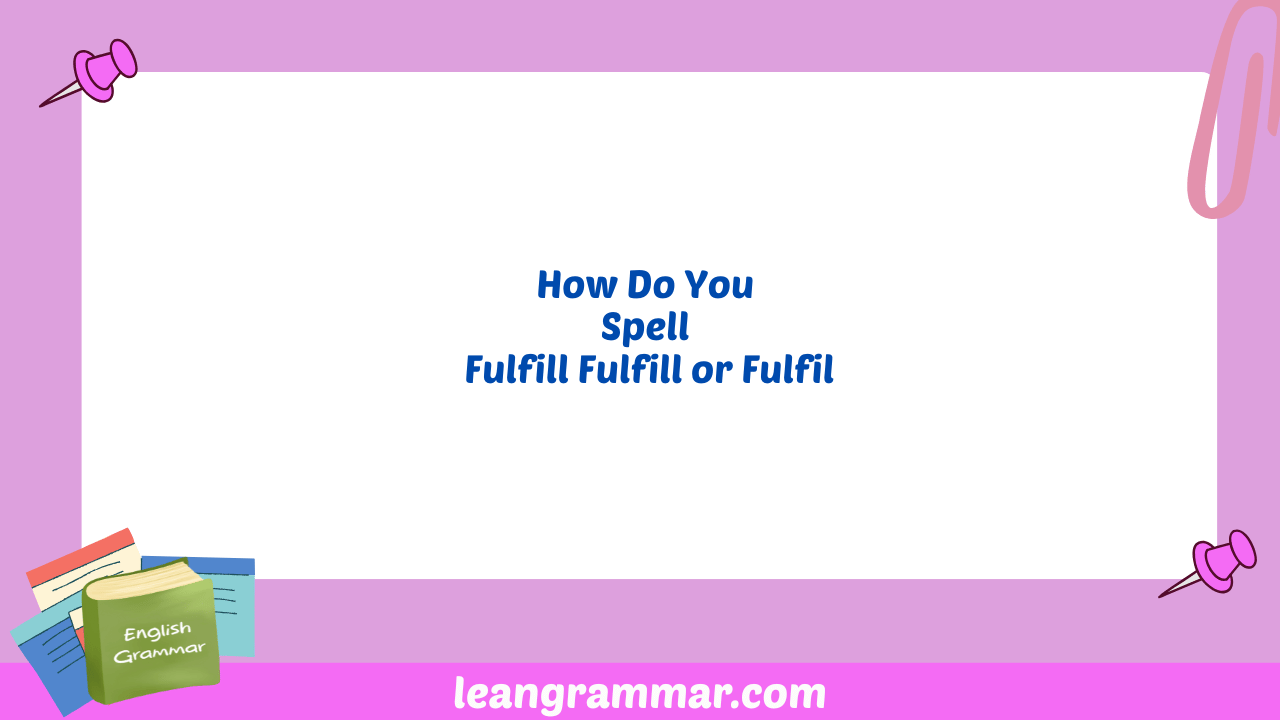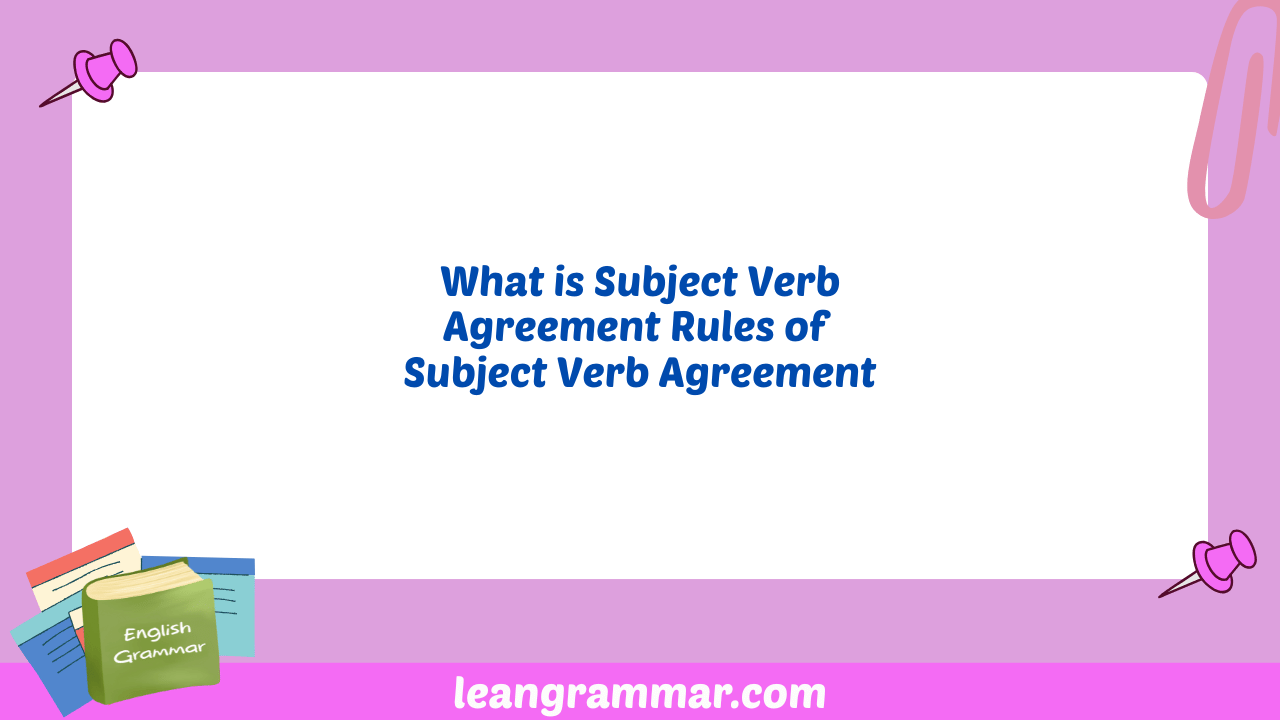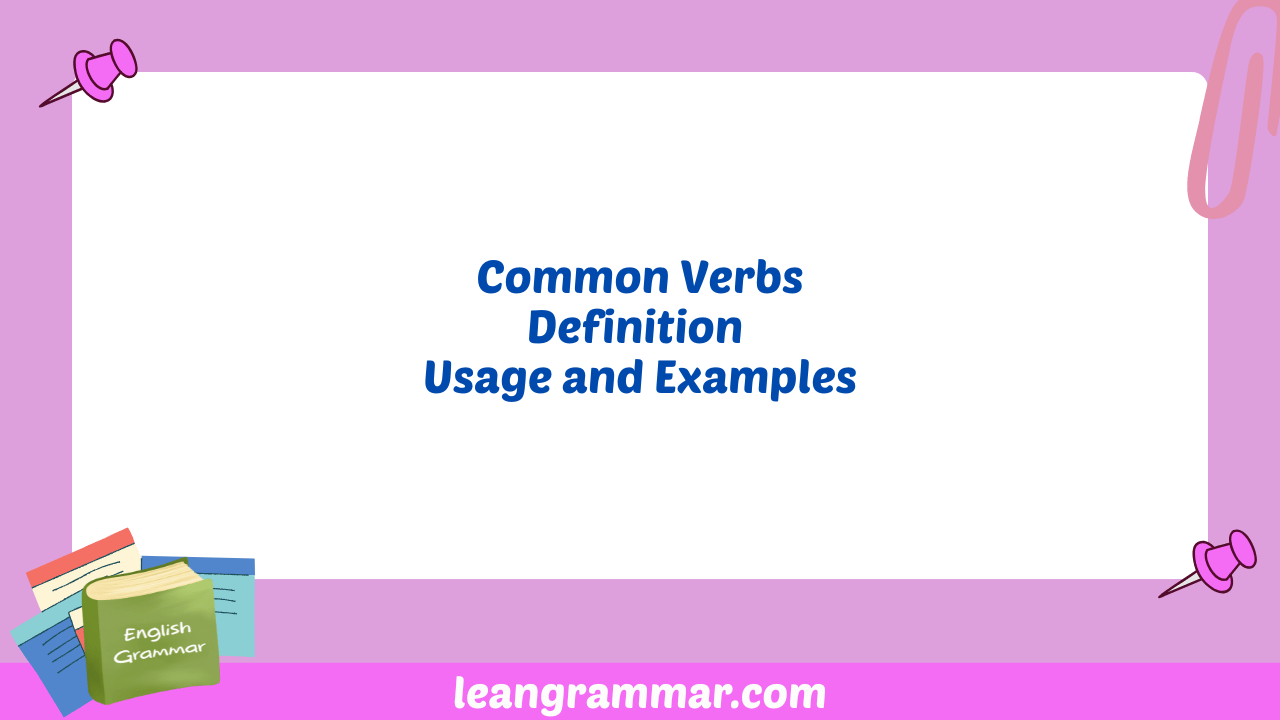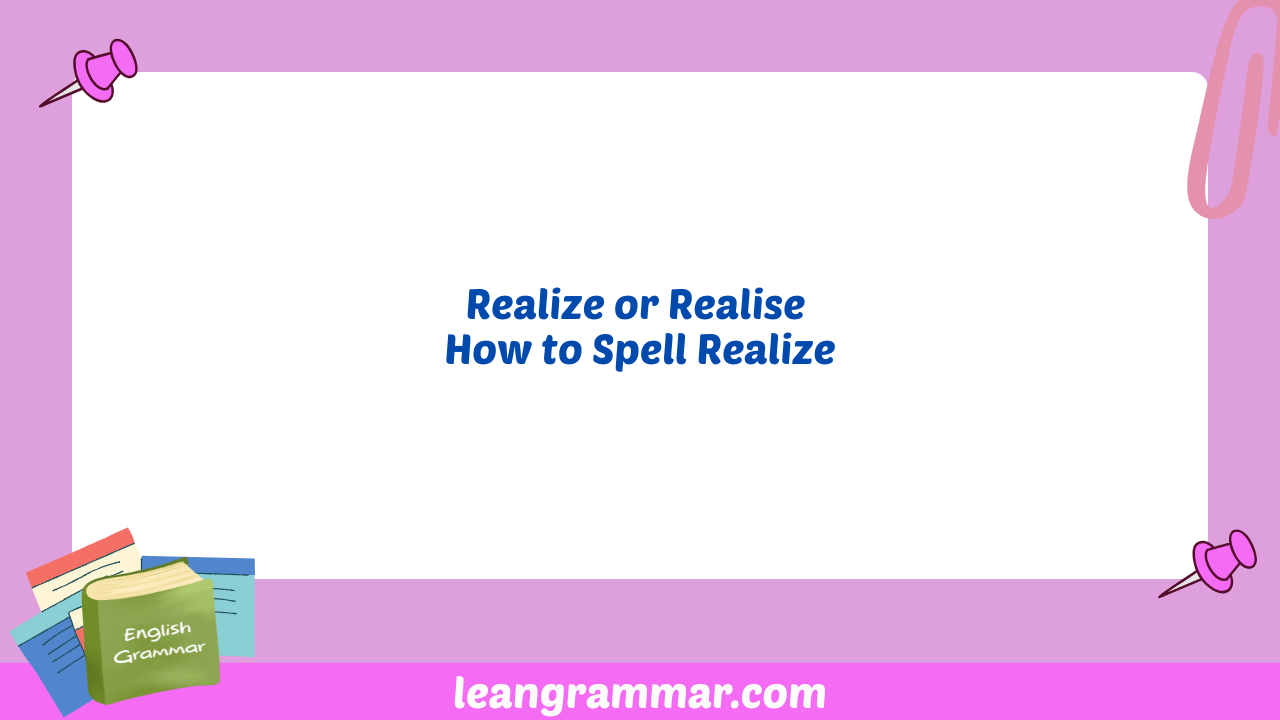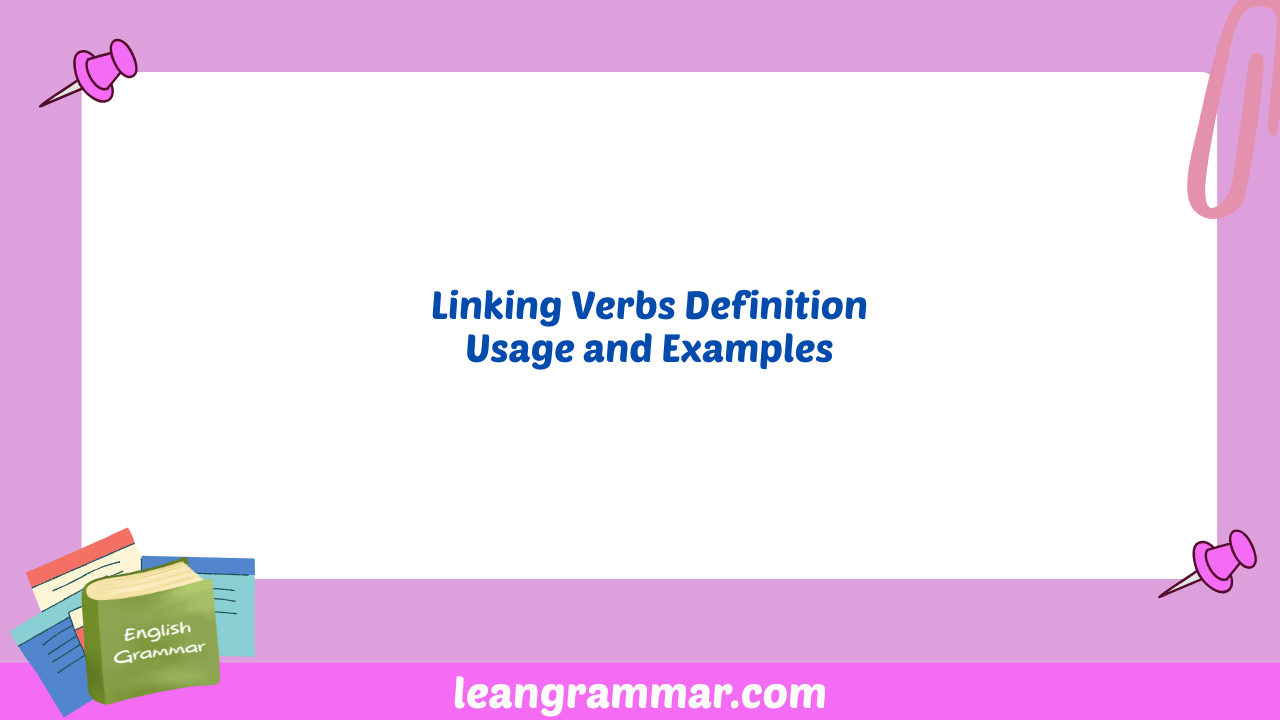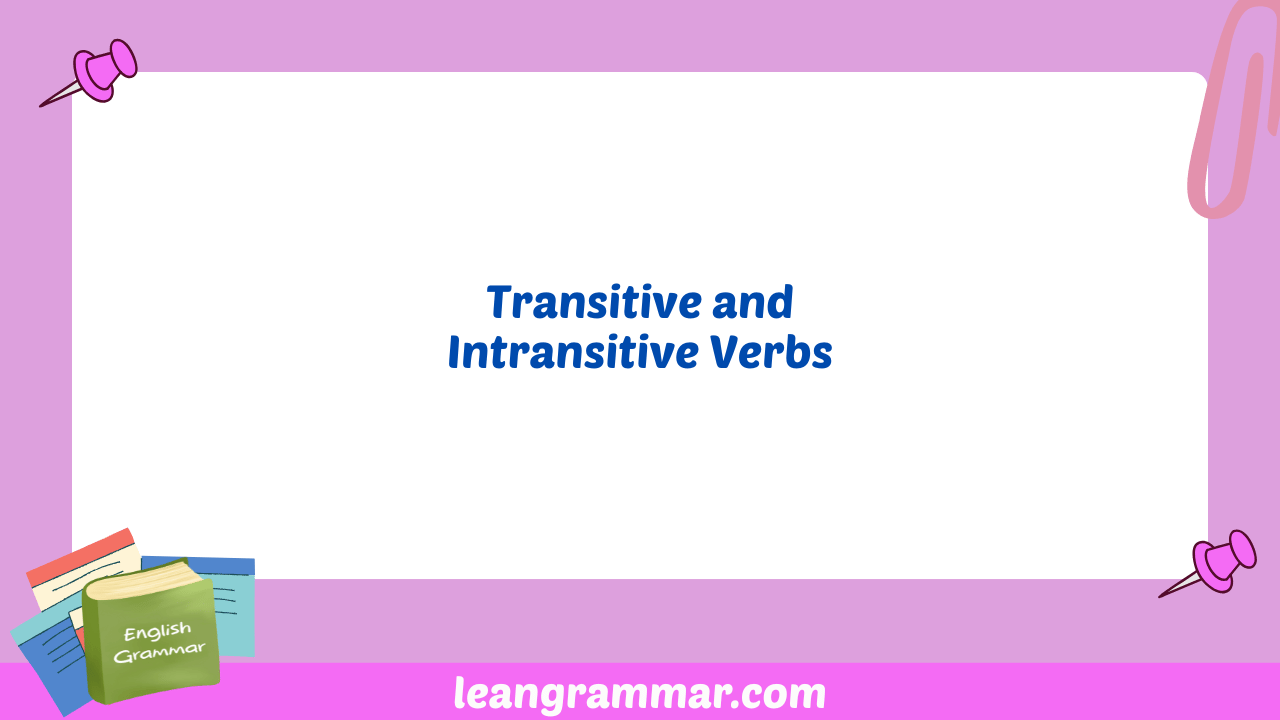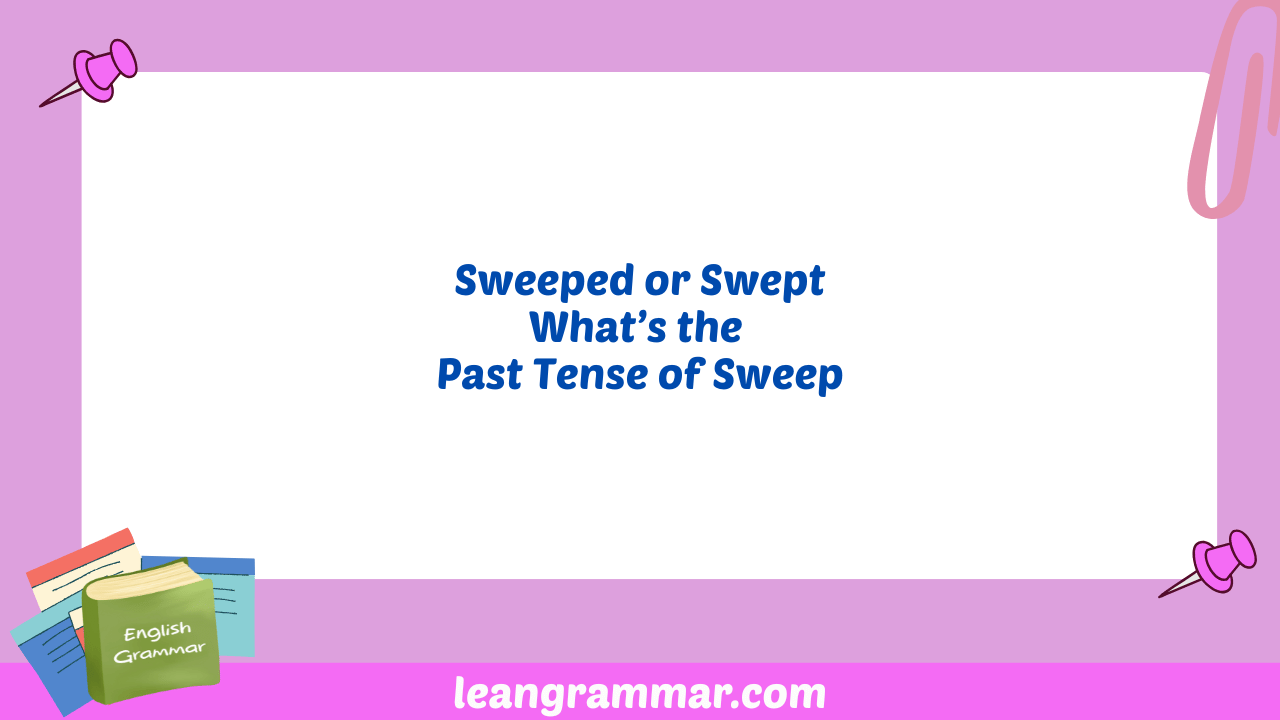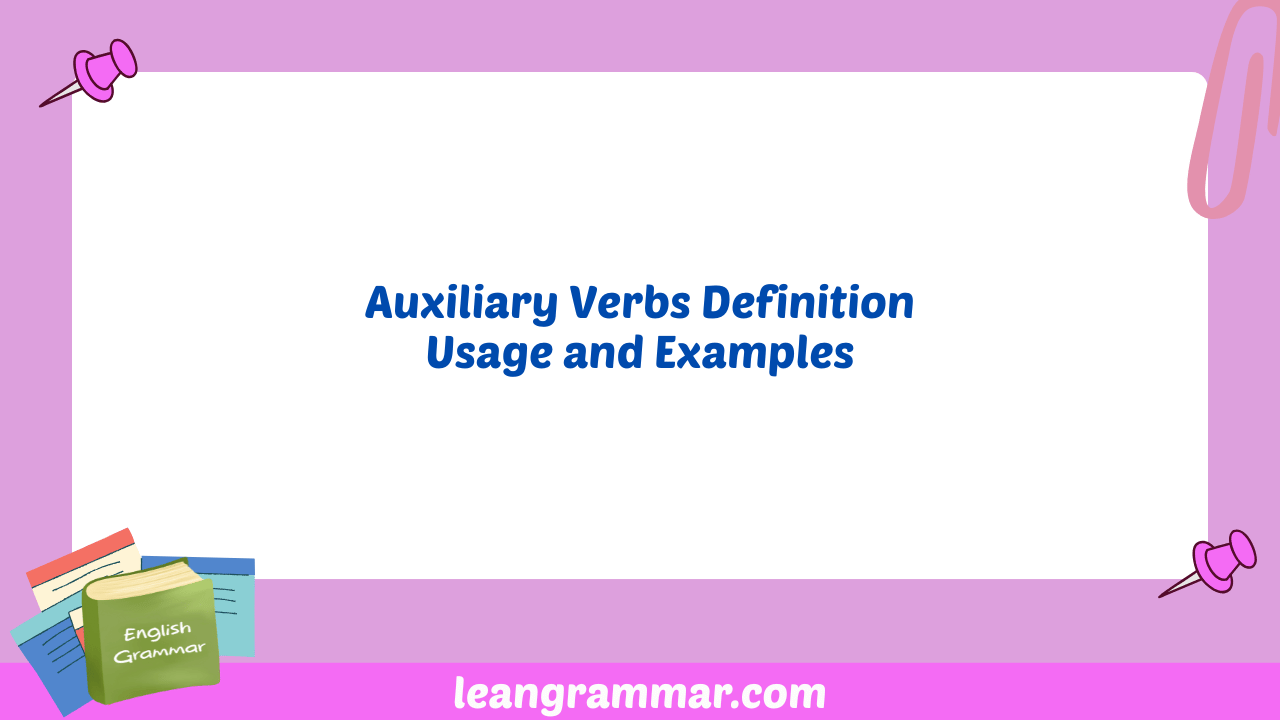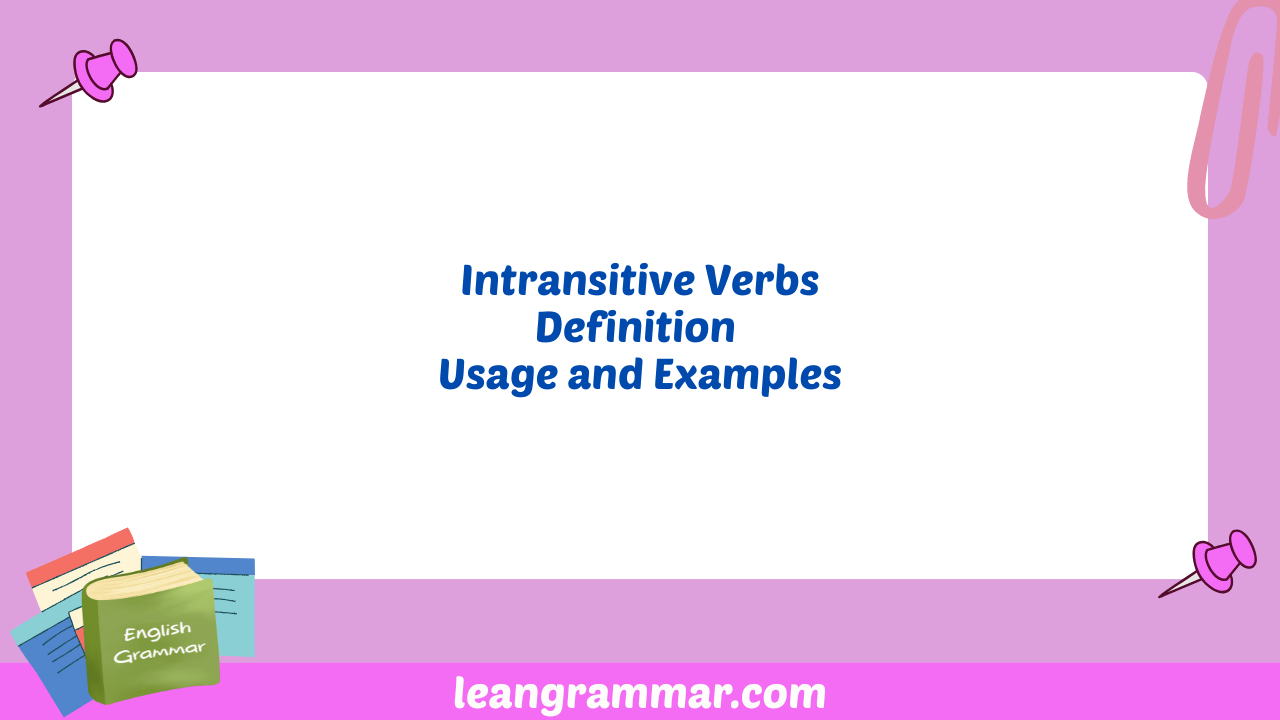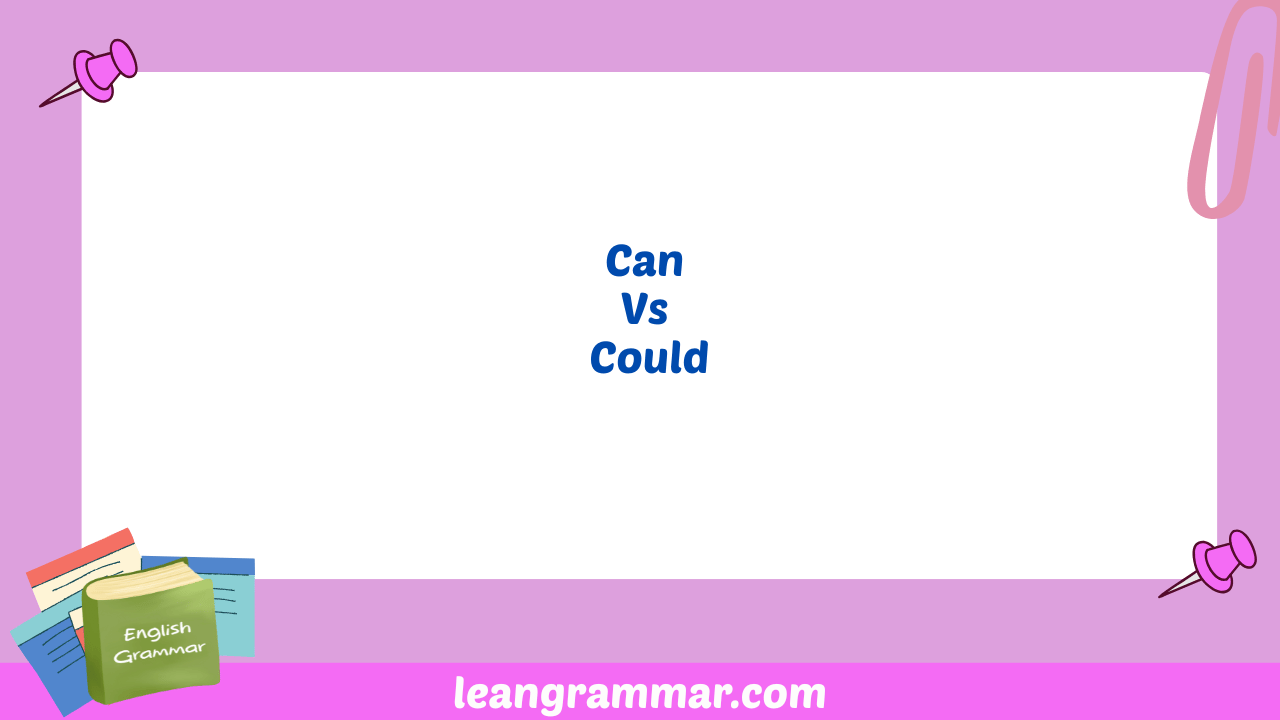Fulfill vs. Fulfil: Mastering the Spelling of This Verb
Understanding the correct spelling of the verb “fulfill” or “fulfil” is crucial for clear and accurate writing. This verb, meaning to complete or satisfy something, appears frequently in both formal and informal contexts. Knowing when to use the single “l” versus the double “l” can significantly improve your written communication and avoid common errors. This … Read more
